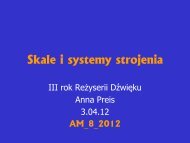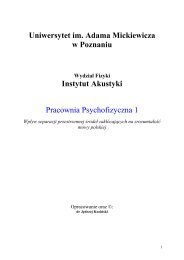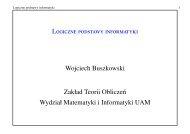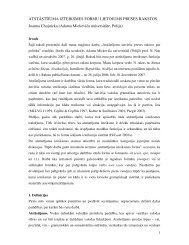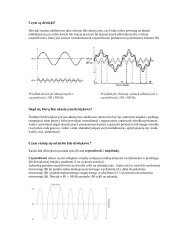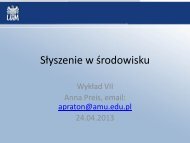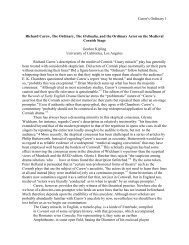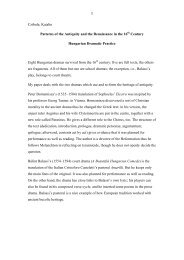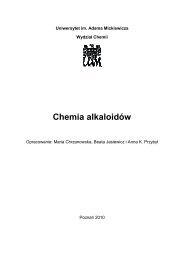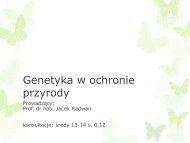Amir Weiner Getting to Know You
Amir Weiner Getting to Know You
Amir Weiner Getting to Know You
You also want an ePaper? Increase the reach of your titles
YUMPU automatically turns print PDFs into web optimized ePapers that Google loves.
GETTING TO KNOW YOU 27<br />
socio-political past used for blackmailing during the recruitment of<br />
individual informants, surveillance truly was an equal opportunity system. In<br />
its report on intelligence-operational work in January and March 1949, the<br />
Second Department of the Lithuanian MGB counted 463 agents and 2,208<br />
informants, of whom 16 agents and 49 informants were new recruits. Some<br />
were recruited based on their useful contacts. Agent “Maksim,” a prominent<br />
56-year-old Jewish gynecologist whose list of friends and patients included<br />
former members of the Lithuanian interwar social and economic elite who<br />
were now identified as agents of foreign intelligence services, was recruited for<br />
these very reasons. Agent “Bal´chunas,” a 57-year-old Lithuanian peasant who<br />
had served in the interwar Lithuanian and wartime German police forces, was<br />
recruited because of the information he could provide on individuals who<br />
were in contact with the U.S. embassy in Moscow and others who resided<br />
outside the Soviet Union. Agent “Algis,” a 24-year-old worker, was trained by<br />
the German police in Dresden during the war and <strong>to</strong>ok part in battles against<br />
the Red Army before he was taken prisoner by the Soviets. Such a record<br />
earned people a 25-year sentence, but the familiarity of “Algis” with scores of<br />
people with similar backgrounds was more important <strong>to</strong> the MGB.<br />
Maria Poškus lived up <strong>to</strong> her code name “Tsiganka” (Gypsy). Having<br />
moved <strong>to</strong> Germany during the war, where she married a Lithuanian who had<br />
served in the Wehrmacht, Poškus moved between Hamburg and England before<br />
she returned <strong>to</strong> Lithuania. She kept corresponding with her husband, who<br />
stayed in the British occupation zone in Germany, and was contemplating reuniting<br />
with him when she was recruited on account of her alleged useful contacts<br />
with the British intelligence. Agent “Tamara” was born in Philadelphia<br />
in 1925. After her father’s death in 1934, the family returned <strong>to</strong> Lithuania. By<br />
1949, “Tamara” was still in limbo, possessing neither Soviet nor U.S. citizenship<br />
despite qualifying for both. She did manage, however, <strong>to</strong> enroll in the<br />
anti-Soviet underground. Arrested in early 1949, she was not sentenced but<br />
rather was recruited as an agent on account of her past romantic relations with<br />
a leader of a nationalist guerrilla force, familiarity with other leaders of the underground,<br />
and potential intelligence regarding the U.S. embassy in Moscow. 75<br />
While the Soviets may be faulted for coming up short in building a genuinely<br />
egalitarian society, at least on one front the regime constructed and nurtured an<br />
unmistakable socialist trait: every citizen—regardless of political past, ethnicity,<br />
religion, age, or gender—was an eligible informant. 76<br />
75 LYA f. K-1, ap. 2, b. 12, ll. 2–8, 11–13, 83–86.<br />
76 Unsurprisingly, this pattern was identical <strong>to</strong> the East German Stasi. See Barbara Miller,<br />
The Stasi Files Unveiled: Guilt and Compliance in a Unified Germany (New Brunswick, NJ:<br />
Transaction, 2004), 35–85.



